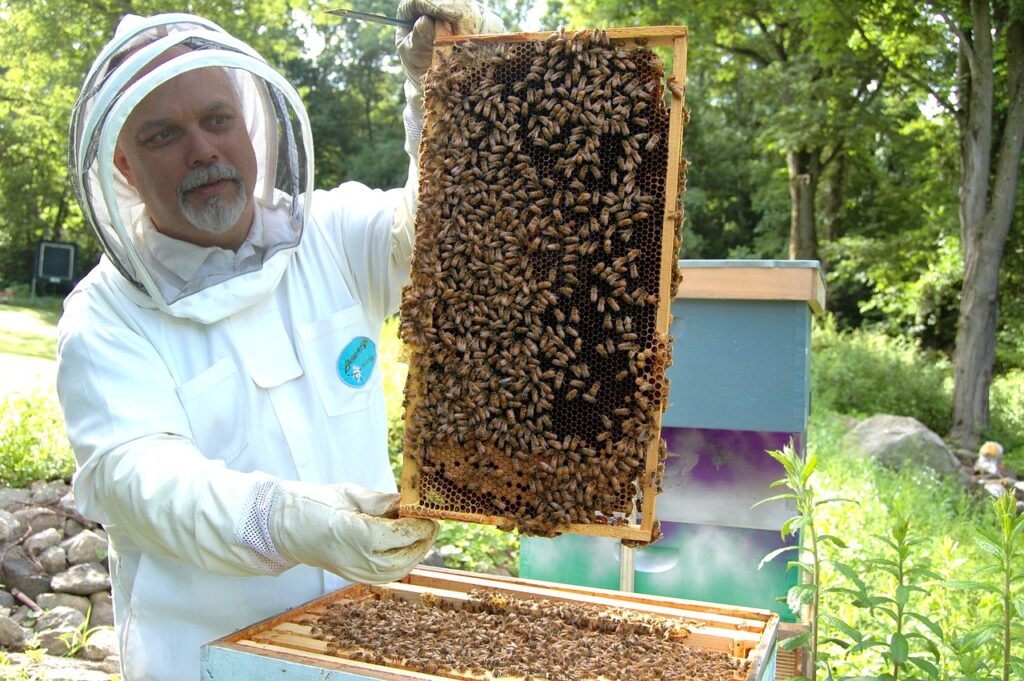In recent years, the decline in global bee populations has sparked a growing awareness of the vital role these pollinators play in our ecosystem. As advocates for the environment, many beekeepers are turning towards sustainable practices to ensure the well-being of bees while maintaining a delicate balance between honey production and preserving these essential creatures. Sustainable beekeeping practices stand at the forefront, championing a harmonious relationship between beekeepers and nature.
Understanding Sustainable Beekeeping:
At its core, sustainable beekeeping revolves around fostering healthy bee colonies in ways that minimize stress, prioritize their welfare, and support the ecosystem they thrive in. Unlike traditional methods solely focused on high honey yields, sustainable beekeeping emphasizes a holistic approach that nurtures bees and their environment.
Key Principles of Sustainable Beekeeping:
- Natural Hive Management: Sustainable beekeepers prioritize the natural behaviors of bees, allowing them to build comb and reproduce without interference. This method respects the bees’ instincts and minimizes disruptions to their natural cycle.
- Minimal Use of Chemicals: Limiting the use of pesticides and antibiotics is fundamental in sustainable beekeeping. Instead, natural alternatives and integrated pest management techniques are employed to maintain hive health.
- Bee-Friendly Environment: Creating a supportive environment for bees involves planting diverse, pesticide-free flora that provides a rich and varied source of nectar and pollen. This not only aids bee nutrition but also contributes to biodiversity and ecosystem health.
- Ethical Harvesting: Sustainable beekeepers prioritize ethical honey harvesting, leaving enough honey for the bees to sustain themselves through the seasons. This approach respects the bees’ hard work and ensures their survival.
The Benefits of Sustainable Beekeeping:
- Preserving Bee Populations: By promoting healthier bee colonies and reducing stress factors, sustainable beekeeping aids in conserving bee populations, which are vital for pollinating crops and maintaining biodiversity.
- Environmental Stewardship: Sustainable practices contribute to a healthier environment by supporting diverse plant life and minimizing the impact of chemical use on ecosystems.
- High-Quality Bee Products: Honey and other bee-related products derived from sustainable practices often boast superior quality and purity, reflecting the natural essence of the environment in which they were produced.
The Future of Beekeeping Lies in Sustainability:
As concerns about environmental sustainability continue to grow, the shift towards ethical and sustainable beekeeping practices becomes imperative. Beekeepers, enthusiasts, and consumers alike have a role to play in supporting practices that prioritize the health and well-being of bees.
Embracing sustainable beekeeping practices isn’t just a choice; it’s a responsibility—a commitment to safeguarding these remarkable pollinators and the intricate ecosystems they support. By nurturing bees in ways that respect their natural tendencies and contribute positively to the environment, we pave the way for a brighter, more sustainable future—one that thrives on the delicate dance between bees and blooms.

